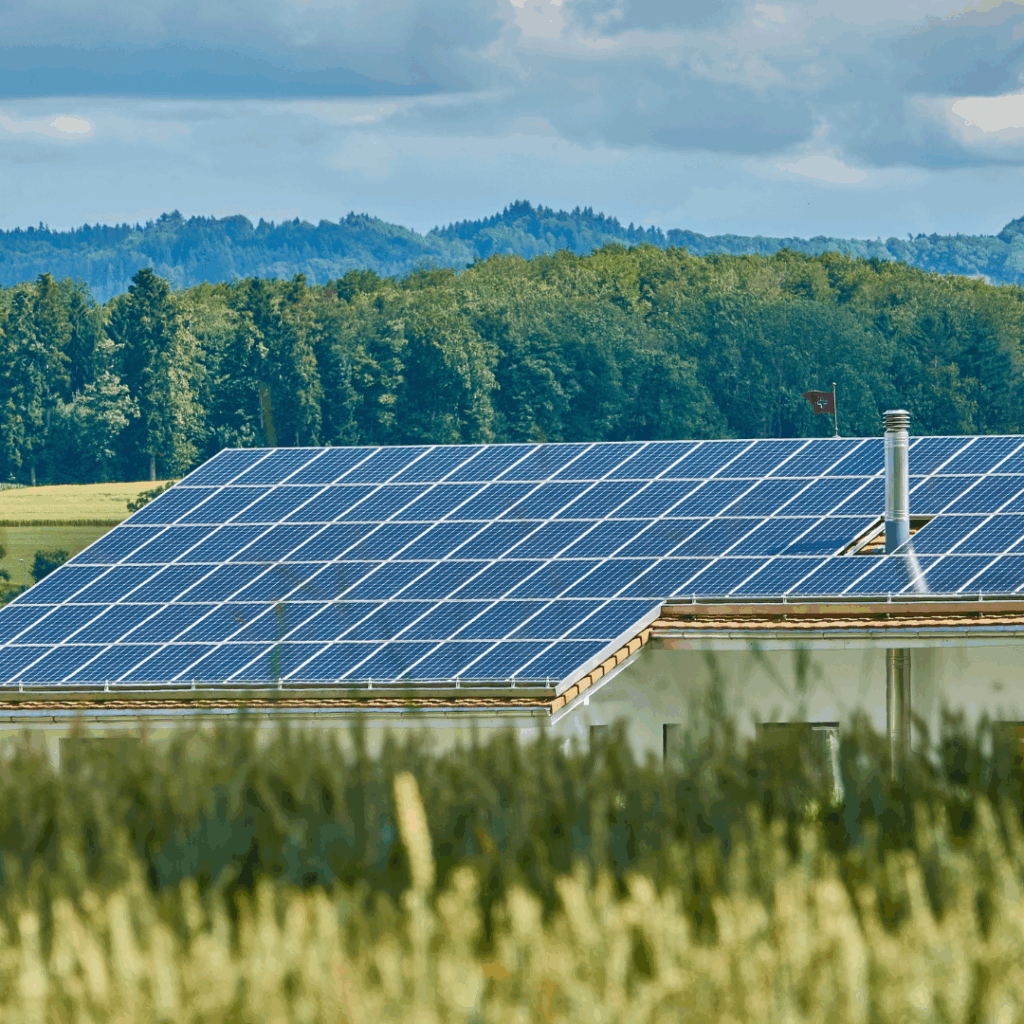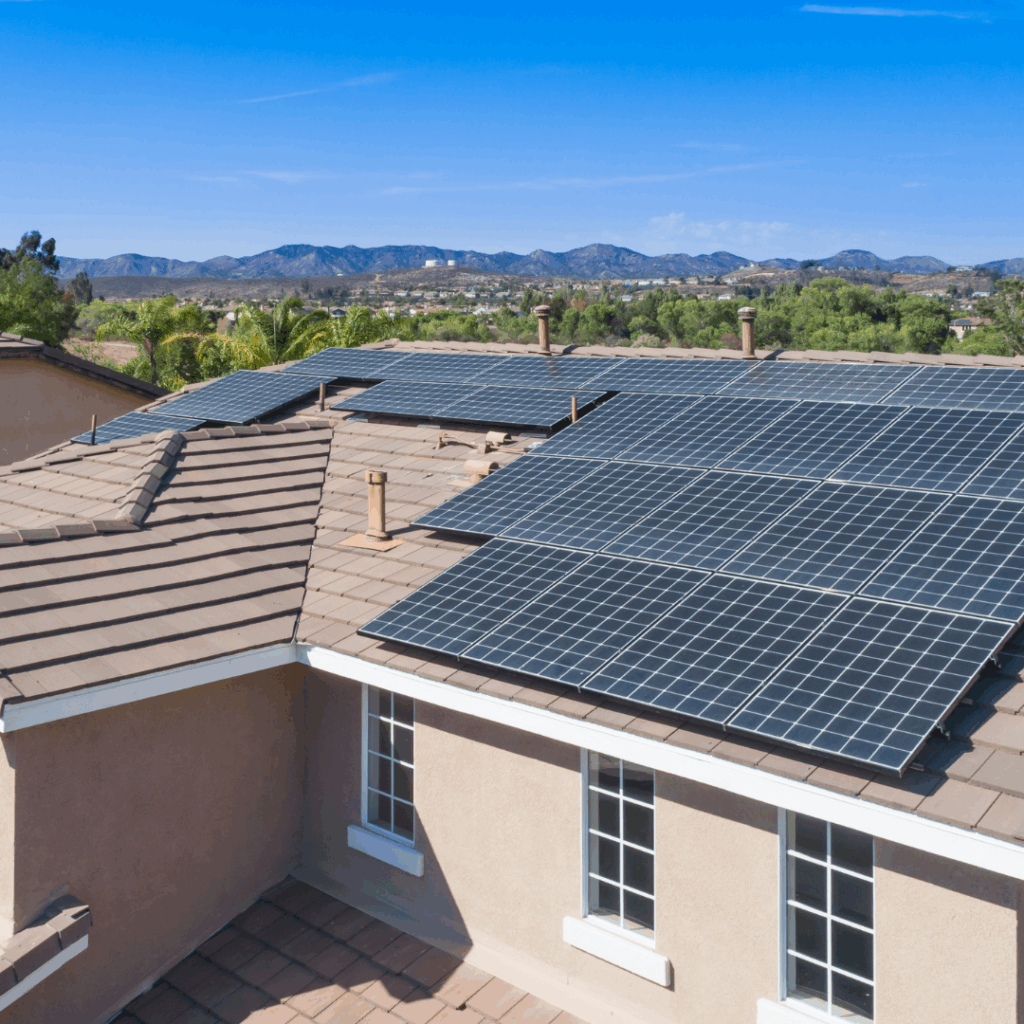Solar panels are no longer just a futuristic concept—they’re a practical home improvement seen on rooftops across the country. As utility prices continue to rise and sustainable living becomes more important to homeowners and buyers alike, many people are asking whether solar panels actually boost a home’s value. The short answer is yes—but how much they increase value depends on a variety of factors. Understanding how solar impacts resale value, what buyers are looking for, and how to get the most from your investment can help you make smarter decisions whether you already have solar or are considering installation.

How Solar Panels Increase Home Value
Research consistently shows that homes with solar panels tend to sell for more money than comparable homes without them. According to a study by the National Renewable Energy Laboratory (NREL), homes with solar can sell for up to 4% more than homes without. This increase is largely due to the long-term financial benefits that solar panels offer. Buyers see a home with solar as a smart investment that will lower their monthly utility costs, reduce dependence on fluctuating energy prices, and contribute to a more sustainable lifestyle. These practical and emotional benefits translate into higher demand—and higher demand typically means a higher sale price.
Factors That Influence the Added Value
Not every solar installation will add the same amount of value to a property. Key factors include the size and efficiency of the system, the quality of the equipment, and how recently it was installed. The biggest factor, however, is whether the solar system is owned or leased. Owned systems are generally seen as an asset and add more value, since there are no financial obligations the buyer needs to assume. Leased systems, on the other hand, can complicate the sale and even reduce the appeal of the home unless the lease terms are favorable. Other factors like the orientation of the panels, battery storage, and overall system design also influence perceived value.
Regional and Market Considerations
Where you live plays a major role in how much value solar panels will add to your home. In areas where energy prices are high, such as California, New York, or Hawaii, the return on investment is much higher because buyers can immediately see meaningful savings on their utility bills. Likewise, states that offer tax incentives, rebates, or net metering programs for solar power tend to have a stronger market for solar-equipped homes. If you live in a neighborhood where solar is common, that familiarity can also work in your favor, as potential buyers will already understand the benefits and won’t be put off by the idea of owning solar.

The Importance of Proper Documentation
When it comes time to sell your home, having thorough documentation for your solar panel system can make a big difference in the sales process. Prospective buyers—and appraisers—will want to see details about the system’s installation, energy production, warranties, maintenance records, and proof of ownership. Being able to show how much your system saves on utility bills each month is especially compelling and can serve as a strong selling point. If your solar installation is relatively new and under warranty, be sure to highlight that as an added benefit for the buyer.
How Appraisals Work with Solar
Valuing a solar-equipped home is more complex than it used to be, but appraisers are catching up. The Appraisal Institute now offers guidelines and training for appraisers to accurately value solar systems, using data such as the income approach (calculating future energy savings), the cost approach (factoring installation costs), and sales comparison approach (reviewing similar home sales). However, it’s still a good idea to work with a real estate agent and appraiser who have experience with solar homes. A knowledgeable agent can help you price your home correctly and communicate the solar system’s benefits effectively to both the buyer and appraiser.
Tips for Maximizing Resale Value
If you’re installing solar panels with resale value in mind, make sure to choose a high-quality, efficient system that meets your home’s energy needs. Opt to purchase the system outright if possible, rather than leasing it, so the value is fully transferable to a new owner. Keep all documentation in one place and regularly maintain your system to ensure optimal performance. Adding features like battery storage or a monitoring system can also help your solar setup stand out in the real estate market. Finally, don’t underestimate the power of curb appeal—clean, professionally installed panels can make a great first impression.
Final Thoughts
Solar panels can significantly boost your home’s value under the right conditions. They offer a mix of economic and environmental benefits that appeal to today’s homebuyers, especially in markets where energy efficiency is a priority. While the value they add depends on many variables—from region to system ownership—investing in solar is often a smart long-term move for homeowners. Whether you’re staying in your home for years or planning to sell soon, solar energy offers both immediate and future payoffs worth considering.
How Much Can New Windows Save on Energy Bills?
When homeowners consider improving energy efficiency, windows are often overlooked in favor of larger upgrades, such as…
What to Expect During a Roof Replacement
Replacing your roof may feel like a daunting project, but with the right expectations, the process becomes…
Bathroom Remodeling on a Budget: Where to Save and Where to Spend
Remodeling a bathroom is one of the best ways to update your home’s style, comfort, and resale…



